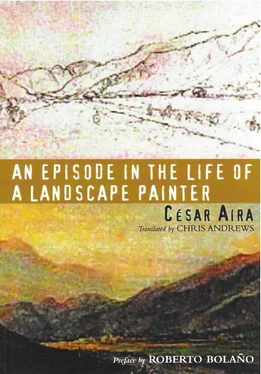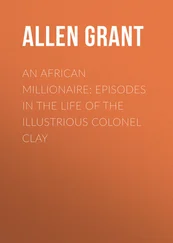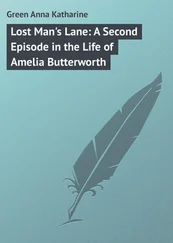Cesar Aira - An Episode in the Life of a Landscape Painter
Здесь есть возможность читать онлайн «Cesar Aira - An Episode in the Life of a Landscape Painter» весь текст электронной книги совершенно бесплатно (целиком полную версию без сокращений). В некоторых случаях можно слушать аудио, скачать через торрент в формате fb2 и присутствует краткое содержание. Год выпуска: 2006, Издательство: New Directions, Жанр: Современная проза, на английском языке. Описание произведения, (предисловие) а так же отзывы посетителей доступны на портале библиотеки ЛибКат.
- Название:An Episode in the Life of a Landscape Painter
- Автор:
- Издательство:New Directions
- Жанр:
- Год:2006
- ISBN:нет данных
- Рейтинг книги:5 / 5. Голосов: 1
-
Избранное:Добавить в избранное
- Отзывы:
-
Ваша оценка:
- 100
- 1
- 2
- 3
- 4
- 5
An Episode in the Life of a Landscape Painter: краткое содержание, описание и аннотация
Предлагаем к чтению аннотацию, описание, краткое содержание или предисловие (зависит от того, что написал сам автор книги «An Episode in the Life of a Landscape Painter»). Если вы не нашли необходимую информацию о книге — напишите в комментариях, мы постараемся отыскать её.
An Episode in the Life of a Landscape Painter
An Episode in the Life of a Landscape Painter — читать онлайн бесплатно полную книгу (весь текст) целиком
Ниже представлен текст книги, разбитый по страницам. Система сохранения места последней прочитанной страницы, позволяет с удобством читать онлайн бесплатно книгу «An Episode in the Life of a Landscape Painter», без необходимости каждый раз заново искать на чём Вы остановились. Поставьте закладку, и сможете в любой момент перейти на страницу, на которой закончили чтение.
Интервал:
Закладка:
Because they had only two wheels (that was their peculiarity), they tipped back when unloaded and their shafts pointed up at the sky, at an angle of forty-five degrees. The ends of the shafts seemed to disappear among the clouds; their length can be deduced from the fact that they could be used to hitch ten teams of oxen. The sturdy planks were reinforced to bear immense loads; whole houses, on occasion, complete with furniture and inhabitants. The wheels were like fairground Ferris wheels, made entirely of carob wood, with spokes as thick as roof-beams and bronze hubs at the center, laden with pints of grease. To give an idea of the carts' real dimensions, Rugendas had to draw small human figures beside them, and, having eliminated the numerous maintenance workers, he chose the drivers as models: imposing characters, equal to their task, they were the aristocracy of the carting business. Those hyper-vehicles were under their control for very considerable periods of time, not to mention the cargoes, which sometimes comprised all the goods and chattels of a magnate. Surely it would take a lifetime at least to travel in a straight line from Mendoza to Buenos Aires at a rate of two hundred meters per day. The cart drivers were transgenerational men; their gaze and manner were living records of the sublime patience exercised by their predecessors. Turning to more practical matters, it seemed that the key variables were weight (the cargo to be transported) and speed: the less the weight, the greater the speed and vice versa. Obviously the long-haul carters, given the flatness of the pampas, had opted to maximize weight.
And one day, suddenly, the carts set off… A week later, they were still a stone's throw away, but sinking inexorably below the horizon. Rugendas, as he informed his friend, was possessed by an urgent, almost infantile desire to depart in their wake. He felt it would be like traveling in time: proceeding rapidly on horseback along the same route, they would catch up with carts that had set off in other geological eras, perhaps even before the inconceivable beginning of the universe (he was exaggerating), overtaking them all on their journey towards the truly unknown.
They set off on that trail. Following that line. A straight line leading all the way to Buenos Aires. What mattered to Rugendas, however, was not at the end of the line but at its impossible midpoint. Where something would, he thought, finally emerge to defy his pencil and force him to invent a new procedure.
The Godoys bid him farewell most affectionately. Would he come back one day? they asked. Not according to his itinerary: from Buenos Aires he would proceed to Tucuman, and from there he would head north to Bolivia and Peru, before eventually returning to Europe, after a voyage of several years… But perhaps one day he would retrace his South American journey in reverse (a poetic idea that came to him on the spur of the moment): once again he would see all that he was seeing now, speak all the words he was speaking, encounter the smiling faces before him, identical, not a day younger or older… His artist's imagination figured this second voyage as the other wing of a vast, mirrored butterfly.
They took an old guide, a boy to cook for them, five horses and two little mares (they had finally managed to get rid of the grumpy mules). The weather, still hot, became drier. In a week of unhurried progress, they left behind trees, rivers and birds, as well as the foothills of the Andes. A ruse against Orphic disobedience: obliterate all that lies behind. There was no point turning around anymore. On the plains, space became small and intimate, almost mental. To give their procedure time to adjust, they abstained from painting. Instead they engaged in almost abstract calculations of the distance covered. Every now and then they overtook a cart, and psychologically it was as if they had leapt months ahead.
They adapted to the new routine. A series of slight bumps indicated their way across the flat immensity. They began to hunt systematically. The guide entertained them with stories at night. He was a mine of information about the region's history. For some reason (no doubt because they were not practicing their art), Rugendas and Krause, in their daily conversations on horseback, hit upon a relation between painting and history. It was a subject they had discussed on many previous occasions. But now they felt they were on the point of tying up all the loose ends of their reasoning.
One thing they had agreed about was the usefulness of history for understanding how things were made. A natural or cultural scene, however detailed, gave no indication of how it had come into being, the order in which its components had appeared or the causal chains that had led to that particular configuration. And this was precisely why man surrounded himself with a plethora of stories: they satisfied the need to know how things had been made. Now, taking this as his starting point, Rugendas went one step further and arrived at a rather paradoxical conclusion. He suggested, hypothetically, that, were all the storytellers to fall silent, nothing would be lost, since the present generation, or those of the future, could experience the events of the past without needing to be told about them, simply by recombining or yielding to the available facts, although, in either case, such action could only be born of a deliberate resolution. And it was even possible that the repetition would be more authentic in the absence of stories. The purpose of storytelling could be better fulfilled by handing down, instead, a set of "tools," which would enable mankind to reinvent what had happened in the past, with the innocent spontaneity of action. Humanity's finest accomplishments, everything that deserved to happen again. And the tools would be stylistic. According to this theory, then, art was more useful than discourse.
A bird flashed across the empty sky. A cart immobile on the horizon, like a midday star. How could a plain like this be remade? Yet someone would, no doubt, attempt to repeat their journey, sooner or later. This thought made them feel they should be at once very careful and very daring: careful not to make a mistake that would render the repetition impossible; daring, so that the journey would be worth repeating, like an adventure.
It was a delicate balance, like their artistic procedure. Once again Rugendas regretted not having seen the Indians in action. Perhaps they should have waited a few more days… He felt a vague, inexplicable nostalgia for what had not happened, and the lessons it might have taught him. Did that mean the Indians were part of the procedure? The repetition of their raids was a concentrated form of history.
Rugendas kept delaying the beginning of his task, until one day he discovered that he had more reasons for doing so than he had realized. A casual remark made beside the campfire provoked a rectification from the old guide: No, they were not yet in the renowned Argentinean pampas, although the country they were crossing was very similar. The real pampas began at San Luis. The guide thought they had simply misunderstood the word. And in a sense, they must have, the German reflected, but the thing itself was involved as well; it had to be. He questioned the guide carefully, testing his own linguistic resources. Were the "pampas," perhaps, flatter than the land they were crossing? He doubted it; what could be flatter than a horizontal plane? And yet the old guide assured him that it was so, with a satisfied smile rarely to be seen among the members of his grave company. Rugendas discussed this point at length with Krause later on, as they smoked their cigars under the starry sky. After all, he had no good reason to doubt the guide. If the pampas existed (and there was no good reason to doubt that either), they lay some distance ahead. After three weeks of assimilating a vast, featureless plain, to be told of a more radical flatness was a challenge to the imagination. It seemed, from what they could understand of the old hand's scornful phrases, that, for him, the current leg of the journey was rather "mountainous." For them, it was like a well-polished table, a calm lake, a sheet of earth stretched tight. But with a little mental effort, now that they had been alerted, they saw that it might not be so. How odd, and how interesting! Needless to say their arrival in San Luis, which was imminent according to the expert, became the object of eager anticipation. For the two days following the revelation they pressed on steadily. They started seeing hills everywhere, as if produced by a conjurer's trick: the ranges of El Monigote and Agua Hedionda. On the third day they came to expanses resonant with emptiness. The sinister nature of the surroundings made an impression on the Germans, and, to their surprise, on the Gauchos too. The old man and the boy talked in whispers, and the man dismounted on a number of occasions to feel the soil. They noticed that there was no grass, not the least blade, and the thistles had no leaves: they looked like coral. Clearly the region was drought stricken. The earth crumbled at a touch, yet a layer of dust did not seem to have formed, although they could not be sure, because the wind had dropped to nothing. In the mortal stillness of the air, the sounds of the horses' hooves, their own words and even their breathing were accompanied by menacing echoes. From time to time they noticed that the old guide was straining anxiously to hear something. It was contagious; they started listening too. They could hear nothing, except perhaps the faint hint of a buzzing that must have been mental. The guide clearly suspected something, but a vague fear prevented them from questioning him.
Читать дальшеИнтервал:
Закладка:
Похожие книги на «An Episode in the Life of a Landscape Painter»
Представляем Вашему вниманию похожие книги на «An Episode in the Life of a Landscape Painter» списком для выбора. Мы отобрали схожую по названию и смыслу литературу в надежде предоставить читателям больше вариантов отыскать новые, интересные, ещё непрочитанные произведения.
Обсуждение, отзывы о книге «An Episode in the Life of a Landscape Painter» и просто собственные мнения читателей. Оставьте ваши комментарии, напишите, что Вы думаете о произведении, его смысле или главных героях. Укажите что конкретно понравилось, а что нет, и почему Вы так считаете.












